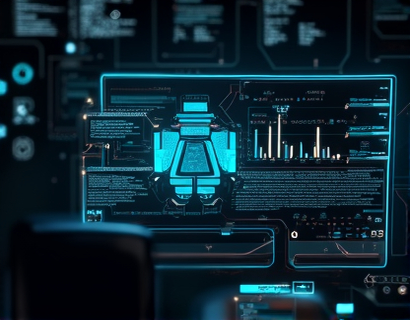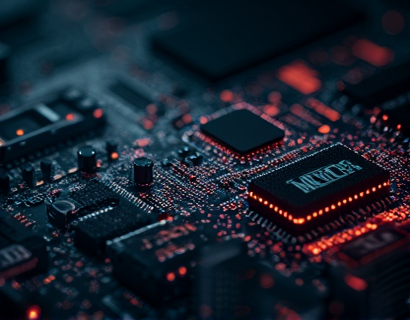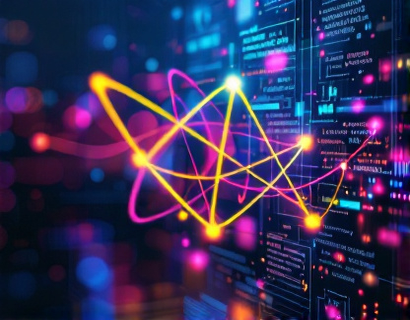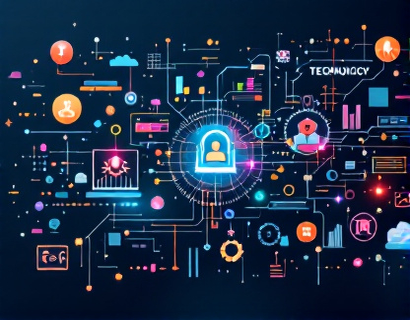Decentralized Excellence: Revolutionizing Digital Transformation with AI and Crypto Synergy
The digital landscape is undergoing a seismic shift, driven by the convergence of artificial intelligence (AI) and cryptocurrency. This synergy is not just a trend; it represents a fundamental transformation in how we interact with technology, businesses, and each other. As we delve into the realm of decentralized innovation, it becomes clear that the fusion of AI and crypto is paving the way for next-generation digital solutions that enhance user experience and engagement.
The Rise of Decentralization
Decentralization has emerged as a powerful paradigm in the digital age. It challenges traditional centralized models by distributing power and control across a network. This shift is particularly evident in the realms of finance, data management, and application development. With the advent of blockchain technology, cryptocurrencies have gained traction as a means of facilitating decentralized transactions, enabling peer-to-peer interactions without the need for intermediaries.
As organizations and individuals increasingly recognize the benefits of decentralization, the demand for innovative solutions that leverage this model has surged. The integration of AI into this landscape further amplifies the potential for transformative change. AI technologies, with their ability to analyze vast amounts of data and learn from patterns, can enhance the functionality and efficiency of decentralized applications (dApps).
AI and Cryptocurrency: A Perfect Match
The marriage of AI and cryptocurrency is a natural evolution in the quest for smarter, more efficient digital solutions. AI can optimize various aspects of cryptocurrency operations, from trading algorithms to fraud detection. By harnessing machine learning and predictive analytics, AI can provide insights that empower users to make informed decisions in real-time.
Moreover, the decentralized nature of cryptocurrencies aligns seamlessly with the principles of AI. Decentralized AI models can operate on distributed networks, ensuring that data privacy and security are maintained. This is particularly crucial in an era where data breaches and privacy concerns are rampant. By utilizing blockchain technology, AI can function in a transparent and secure environment, fostering trust among users.
Enhancing User Experience through Decentralized Solutions
User experience is at the forefront of digital transformation. As consumers become more tech-savvy, their expectations for seamless interactions with applications and services continue to rise. Decentralized solutions powered by AI and cryptocurrency can significantly enhance user experience in several ways.
Personalization and Customization
AI algorithms can analyze user behavior and preferences, enabling the creation of personalized experiences. In a decentralized ecosystem, users can have greater control over their data, allowing them to customize their interactions with applications. This level of personalization fosters engagement and loyalty, as users feel more connected to the services they utilize.
Improved Security and Privacy
Security is a paramount concern in the digital age. Decentralized applications can leverage blockchain technology to enhance security measures. By storing data across a distributed network, the risk of a single point of failure is minimized. AI can further bolster security by identifying anomalies and potential threats in real-time, ensuring that user data remains protected.
Seamless Transactions
Cryptocurrency facilitates fast and secure transactions, eliminating the need for traditional banking intermediaries. When combined with AI, the transaction process can be optimized for speed and efficiency. Smart contracts, powered by AI, can automate various aspects of transactions, reducing the likelihood of errors and enhancing the overall user experience.
Decentralized Applications: The Future of Digital Solutions
Decentralized applications (dApps) are at the forefront of this digital transformation. Unlike traditional applications that rely on centralized servers, dApps operate on a blockchain network, providing users with greater control and transparency. The integration of AI into dApps can unlock new possibilities, making them more intelligent and responsive to user needs.
AI-Driven dApps
AI-driven dApps can analyze user interactions and adapt their functionalities accordingly. For instance, a decentralized finance (DeFi) application can utilize AI to assess market trends and provide users with personalized investment recommendations. This level of intelligence not only enhances user engagement but also empowers individuals to make informed financial decisions.
Interoperability and Connectivity
The interconnected nature of dApps allows for seamless integration across various platforms. AI can facilitate interoperability by enabling different dApps to communicate and share data effectively. This connectivity enhances the overall user experience, as individuals can access a wide range of services without the need for multiple accounts or logins.
Challenges and Considerations
While the potential of merging AI and cryptocurrency is immense, several challenges must be addressed to fully realize this vision. One of the primary concerns is the scalability of decentralized networks. As the number of users and transactions increases, ensuring that the network can handle the load without compromising performance is crucial.
Additionally, regulatory considerations play a significant role in the adoption of decentralized solutions. Governments and regulatory bodies are still grappling with how to approach cryptocurrencies and blockchain technology. Striking a balance between innovation and regulation is essential to foster a conducive environment for growth.
The Role of Community in Decentralized Innovation
Community engagement is a vital component of decentralized innovation. The success of dApps and AI-driven solutions relies on active participation from users, developers, and stakeholders. Building a strong community fosters collaboration and knowledge sharing, driving the evolution of decentralized technologies.
Open-source development is a hallmark of the decentralized movement. By allowing developers to contribute to projects, the community can collectively enhance the functionality and security of applications. This collaborative approach not only accelerates innovation but also ensures that solutions are tailored to meet the needs of users.
Future Trends in Decentralized Digital Transformation
As we look ahead, several trends are likely to shape the future of decentralized digital transformation. The integration of AI and cryptocurrency will continue to evolve, leading to the emergence of new applications and services that prioritize user experience and engagement.
Increased Adoption of AI in Blockchain
As organizations recognize the value of AI in enhancing blockchain applications, we can expect to see increased adoption of AI technologies within the blockchain ecosystem. This will lead to the development of more sophisticated dApps that leverage AI for improved functionality and user experience.
Expansion of Decentralized Finance (DeFi)
The DeFi sector has already witnessed significant growth, and this trend is expected to continue. As AI algorithms become more advanced, they will play a crucial role in optimizing DeFi applications, providing users with personalized financial solutions and insights.
Focus on User-Centric Design
As competition in the digital space intensifies, user-centric design will become a key differentiator for decentralized applications. Developers will prioritize creating intuitive interfaces and seamless user experiences, ensuring that users can easily navigate and interact with dApps.
Conclusion
The convergence of AI and cryptocurrency is revolutionizing the digital landscape, driving the next wave of decentralized innovation. By harnessing the power of these technologies, we can create intelligent, secure, and user-friendly applications that enhance engagement and transform the way we interact with digital solutions. As we continue to explore the potential of decentralized excellence, it is essential to foster collaboration, community engagement, and a commitment to innovation. The future of digital transformation is bright, and the possibilities are limitless.










































